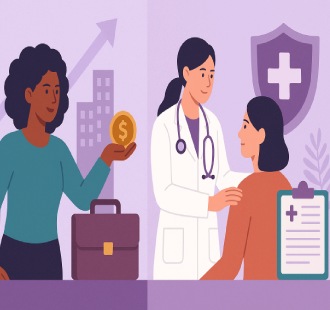How Can We Empower Women's Rights?
Enabling women's rights is not a women's agenda – it's a human one that we all benefit from. When women enjoy equal opportunities, education, and safety from discrimination, communities thrive. But how do we turn this into a reality? How do we go beyond good intentions and deliver real, lasting change?
The answer is to accept that women's empowerment exists on different levels, ranging from discussion within the household to legislative change. We all have our role to play, regardless of gender, background, or socioeconomic status. Let us think about how we can all best play our roles in empowering women's rights.
Education –The Foundation of Empowerment

Knowledge is power, and education is one of the best methods of empowering women. We're not talking about formal education here, although that certainly helps. We're discussing providing opportunities for women to be educated about their rights, learn new skills, and become confident enough to achieve their objectives.
In most societies, women still do not know anything about their legal rights, their reproductive health choices, or their own finances. Some rudimentary training on such topics as the concept of employment contracts, recognizing harassment, or safeguarding personal finances can be powerful. When women are aware of their options, they are more likely to make positive choices for themselves.
We can accomplish this by volunteering for literacy programs, mentoring young women, or simply sharing vetted information in our own circles. Sometimes the most empowering thing you can do is to help another woman see that she has choices she doesn't know exist.
Economic Independence – Breaking the Cycle
Financial independence enables women to possess freedom to make choices in their lives without having to depend on others for basic necessities. It means having the strength to sustain women's enterprise, insisting on equal pay, and clearing paths to economic opportunity.

Small actions can have a great impact here. Purchase from women-owned enterprises, invest in microfinance projects, or help women in your community develop job skills. Successful women business owners started out the same way with someone who believed in them and offered them in-hand help, whether that was capital, mentorship, or simply moral support during tough times.
We also need to address systemic obstacles to economic autonomy for women that prevent them from achieving economic autonomy. This includes demanding affordable childcare, flexible work arrangements, and non-punitive policies for women who are absent from work caring for sick family members.
Healthcare Access – A Fundamental Right
Appropriate access to health care is essential in empowering women. This includes reproductive health care, care for mental health, and treatment of diseases predominantly found among women. If the health care that women need cannot be accessed, it affects every aspect of their lives.
Volunteering at agencies providing health care to women, activism to ensure full insurance coverage, and assistance in assisting women to navigate health care systems are all ways of giving back. Other times it's simply showing up for a doctor's appointment with a friend or researching together.
Political Participation – Having a Voice in Decisions
Women's rights are strengthened when women have their voices heard in the political processes that affect their lives. This includes fighting for women candidates, mobilizing civic participation, and making sure that women have their voices heard during policy discussions.
You don't need to run yourself to be included in making a difference. Campaign volunteering, town halls, or even just being a well-informed citizen about issues that affect women are ways to make a difference. When women are involved in politics, policies are more inclusive and representative of all of the needs.
Challenging Harmful Attitudes and Practices
Real empowerment is about shifting the attitudes and cultural beliefs that bind women. This is typically hardest to do because minds and hearts, not just laws and policies, need to be shifted.
It starts with honest exchanges in our own families and communities. If someone utters a sexist comment, cuts down a woman's remark, or uses unhelpful stereotypes, we can confront them. If we see discrimination occurring, we can intervene safely and effectively.
This also means examining our own assumptions and biases. We all have unconscious gender role assumptions that may limit how we see women's potential. Being willing to question such assumptions in ourselves makes us stronger advocates for others.
The Power of Collective Action
Individual effort matters, but collectively in common effort, we launch movements. When we unite – beyond lines of class, culture, and gender – we are able to bring about change that just a few years ago was unthinkable.
The struggle for women's rights has always been enhanced by friends who recognized that equality serves everyone. Today, that legacy continues with individuals of all backgrounds joining forces to build a world in which every woman can achieve her full potential.
Empowering women's rights is not a point of arrival – it is a continuing journey that demands commitment, imagination, and partnership. Each of us has something to offer in this effort.
Quick Links
On June 25, 2025, DEFAW proudly hosted its first public event in London, graciously supported by the Malala Fund
— Farima Nawabi 🇦🇫 (@FamNawabi) June 28, 2025
The conference, titled "Global Action Against Gender Apartheid in Afghanistan"
@Malala pic.twitter.com/0y3m3WwF6M

